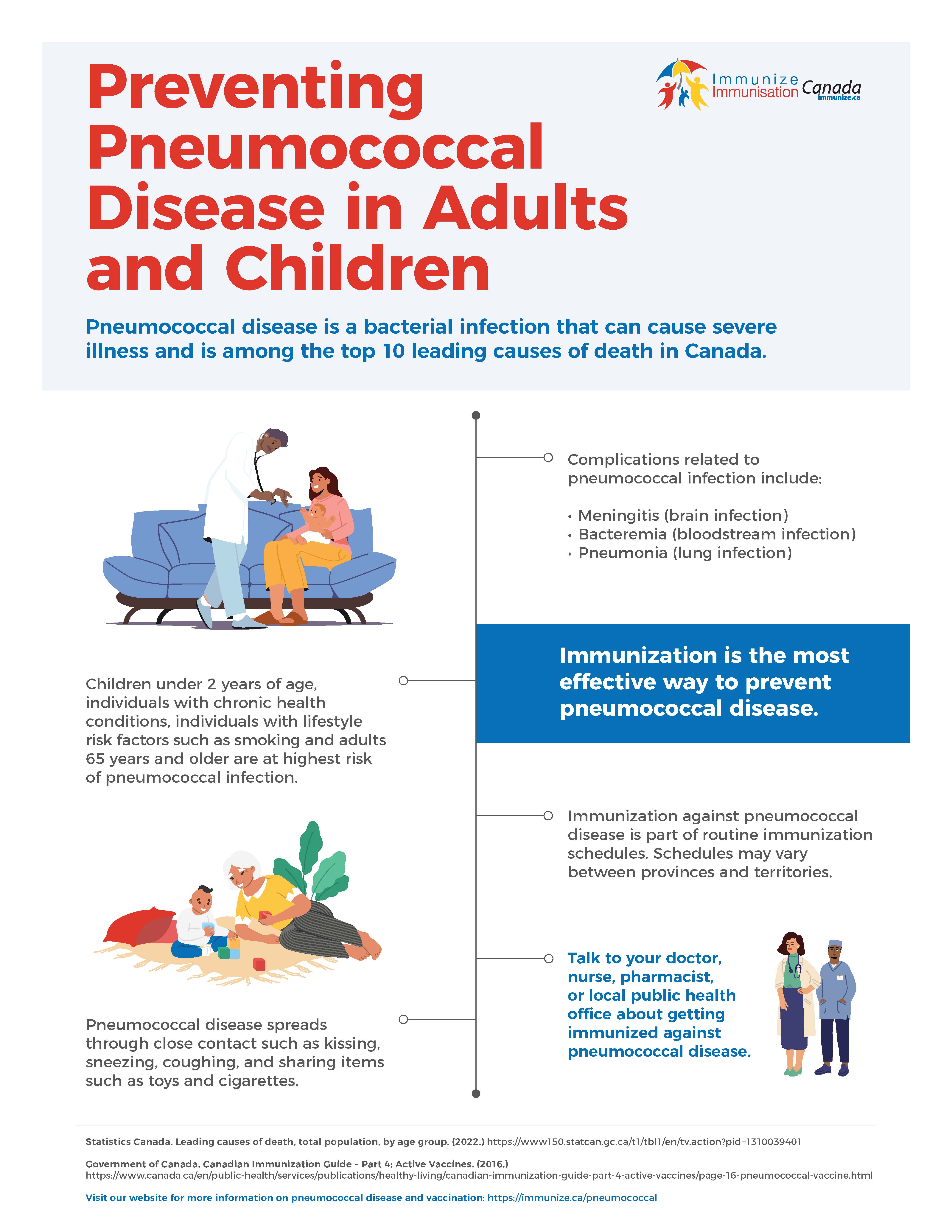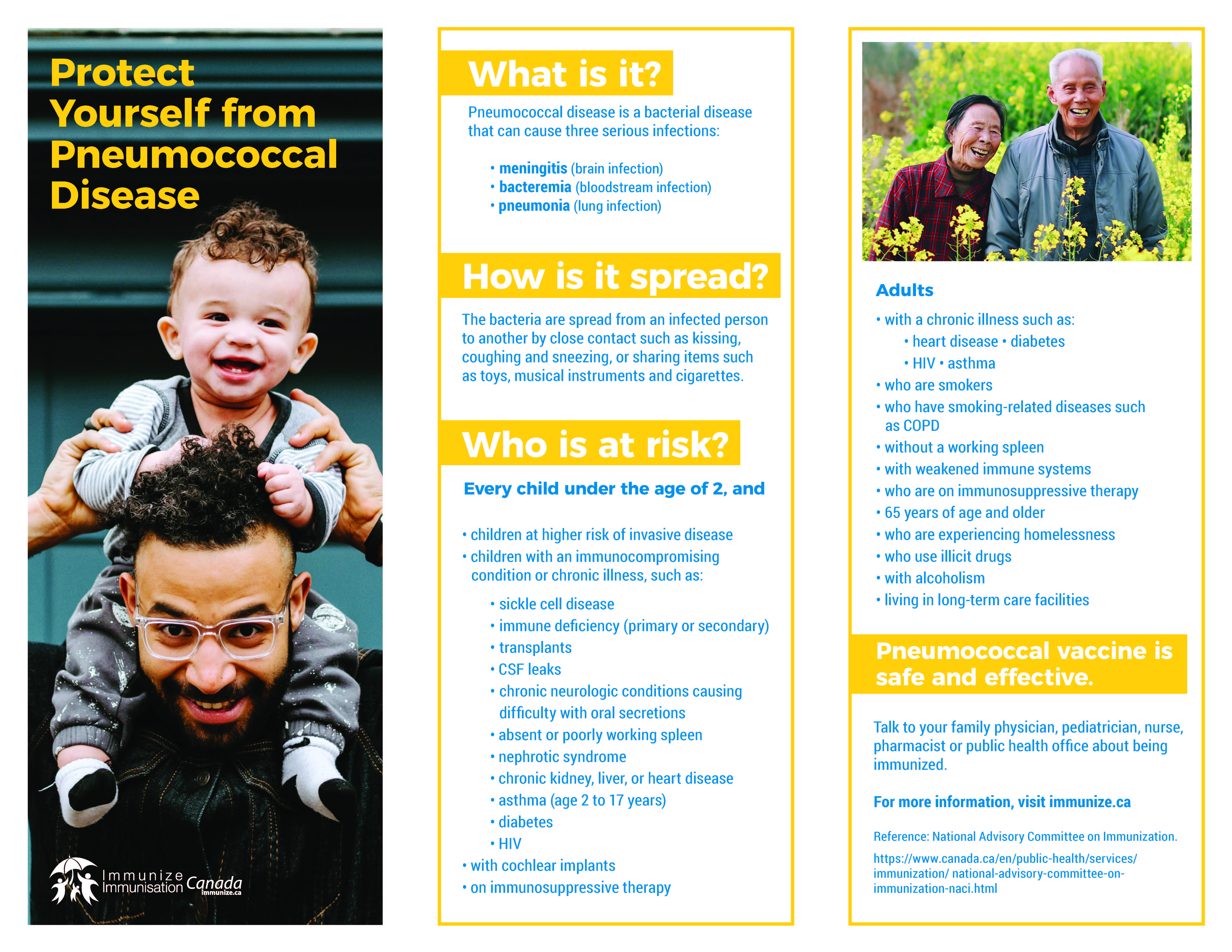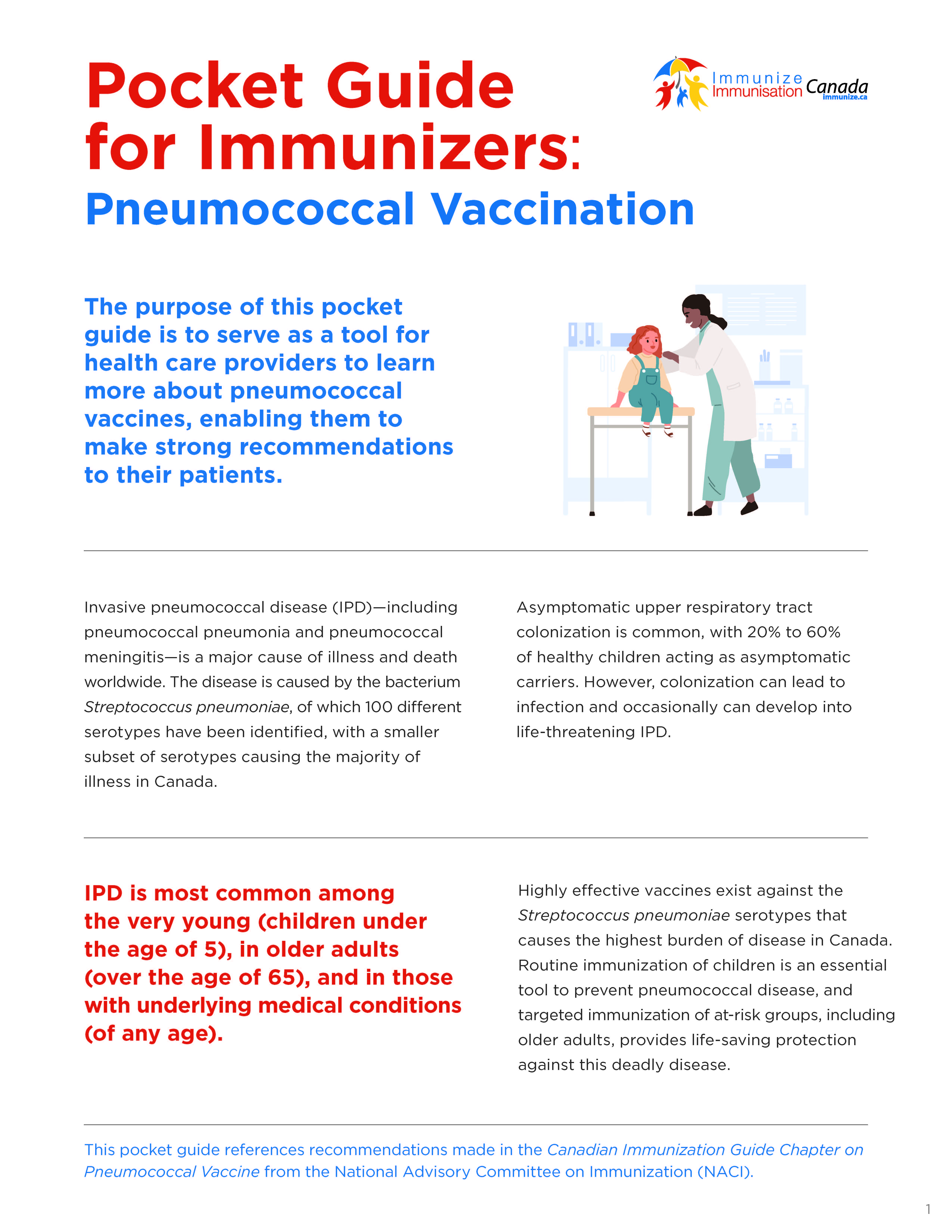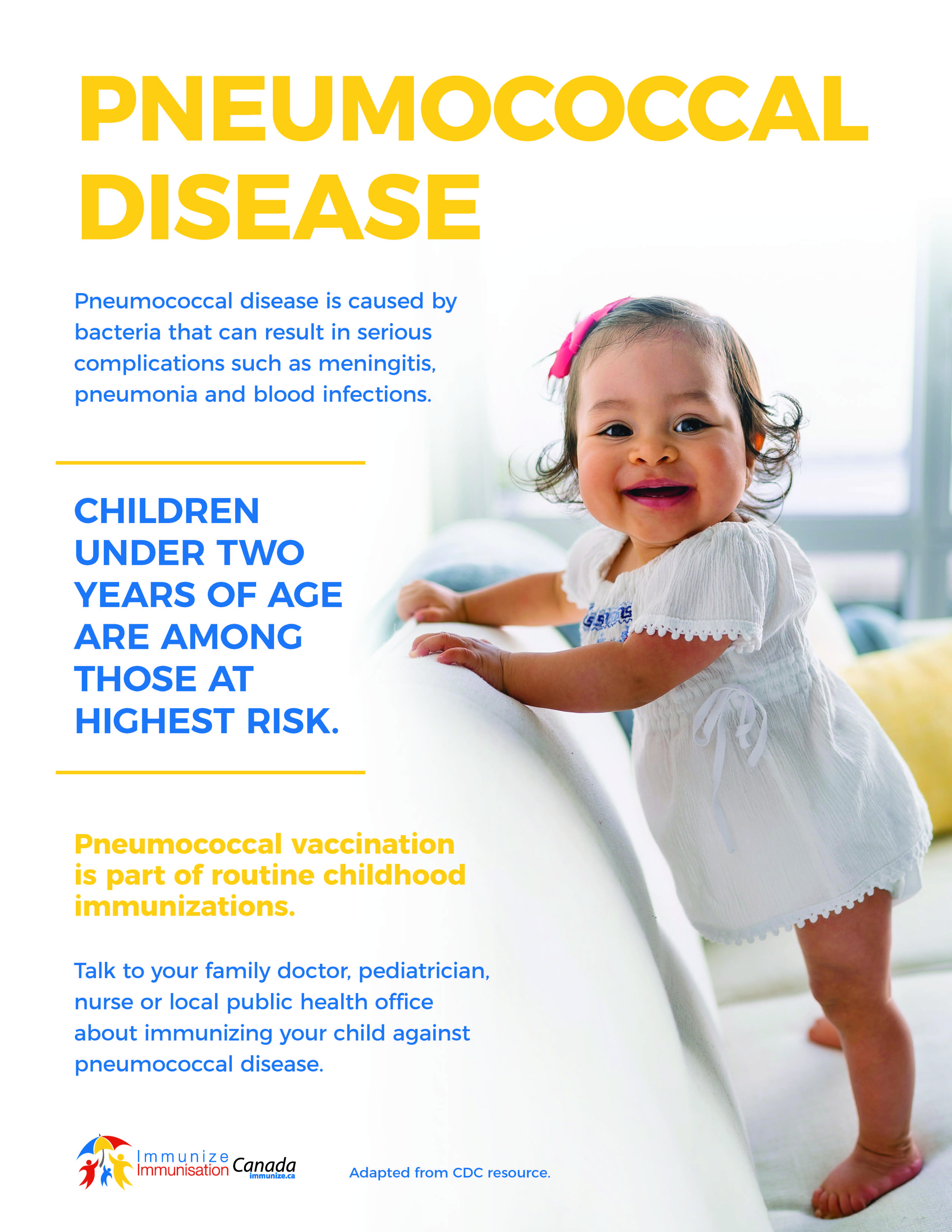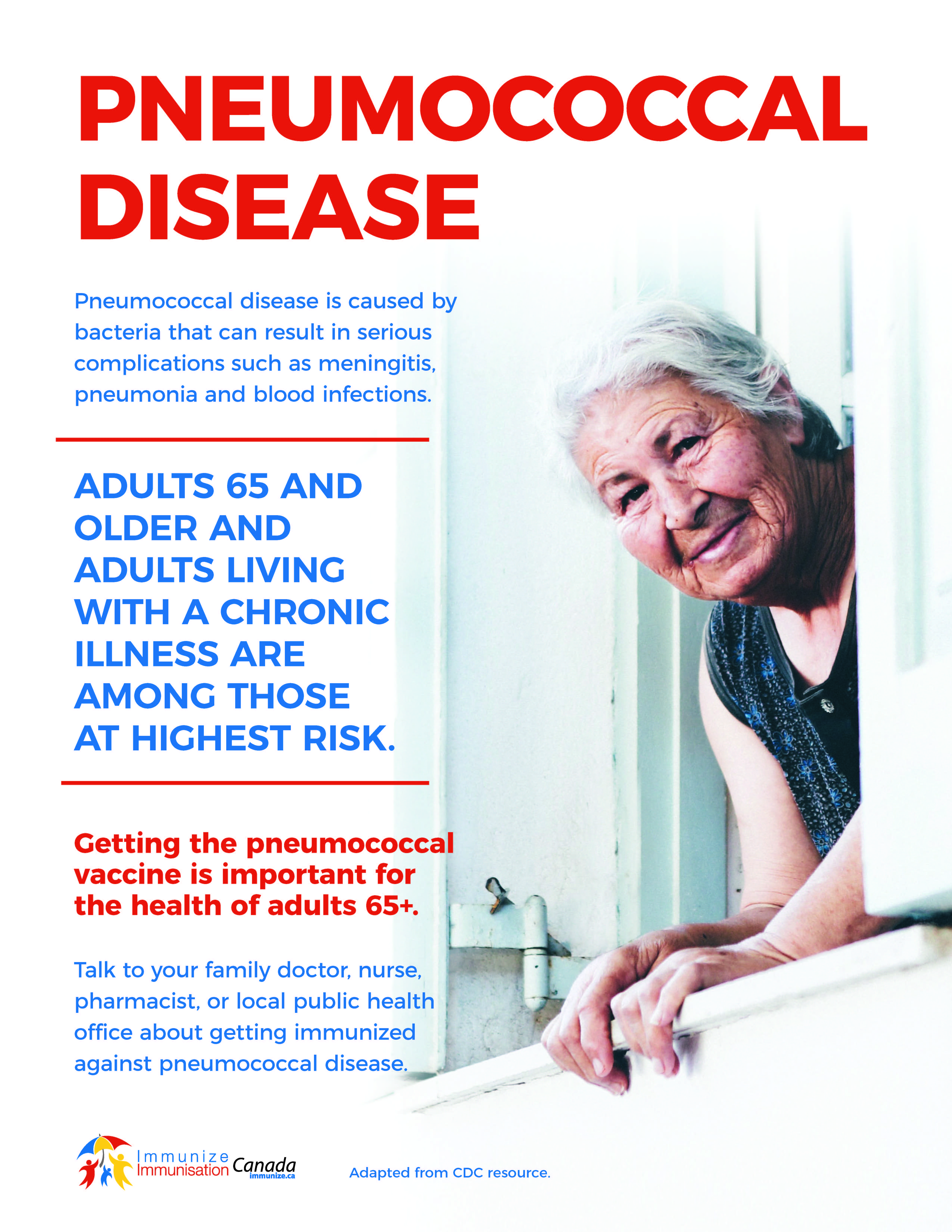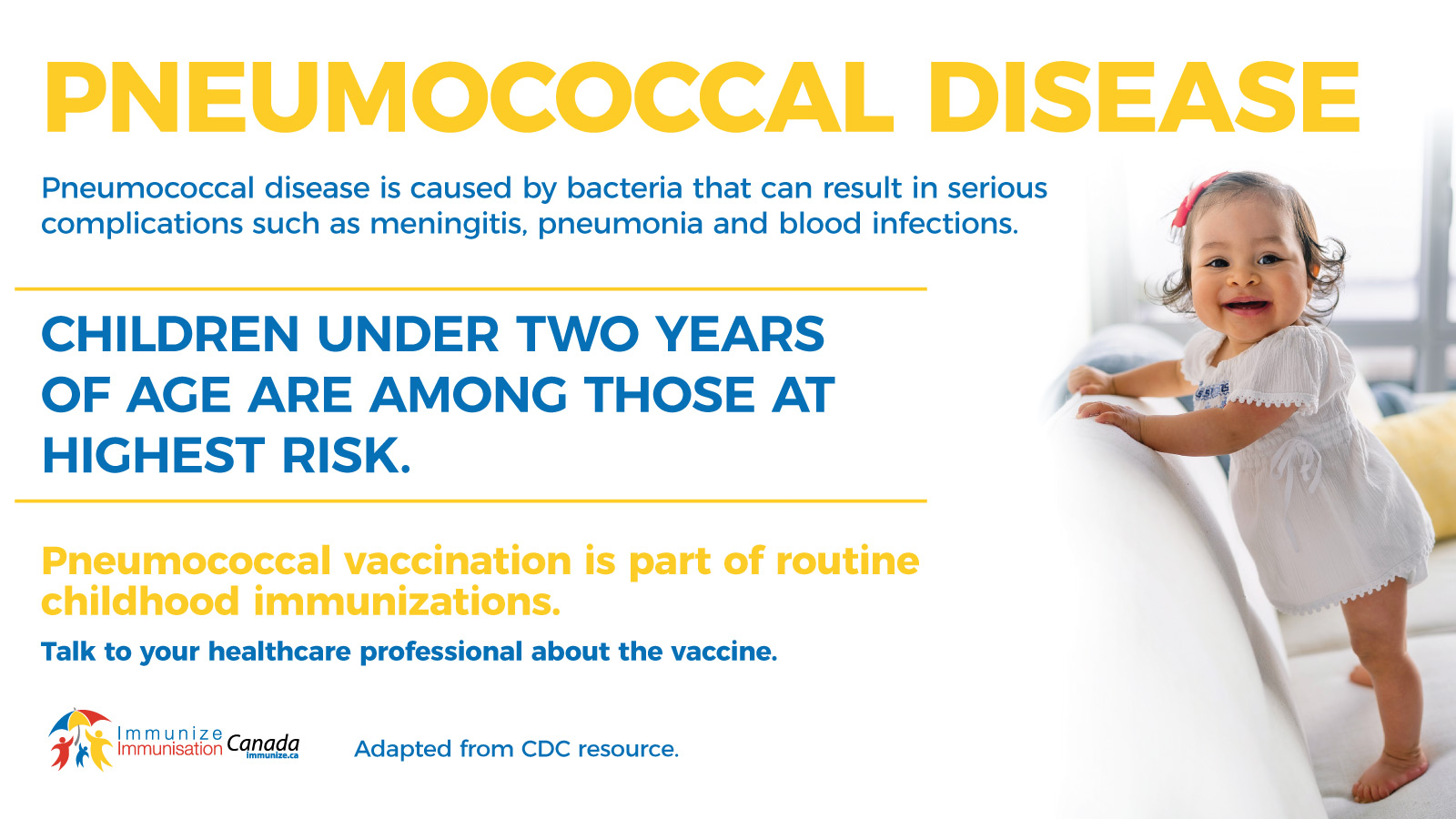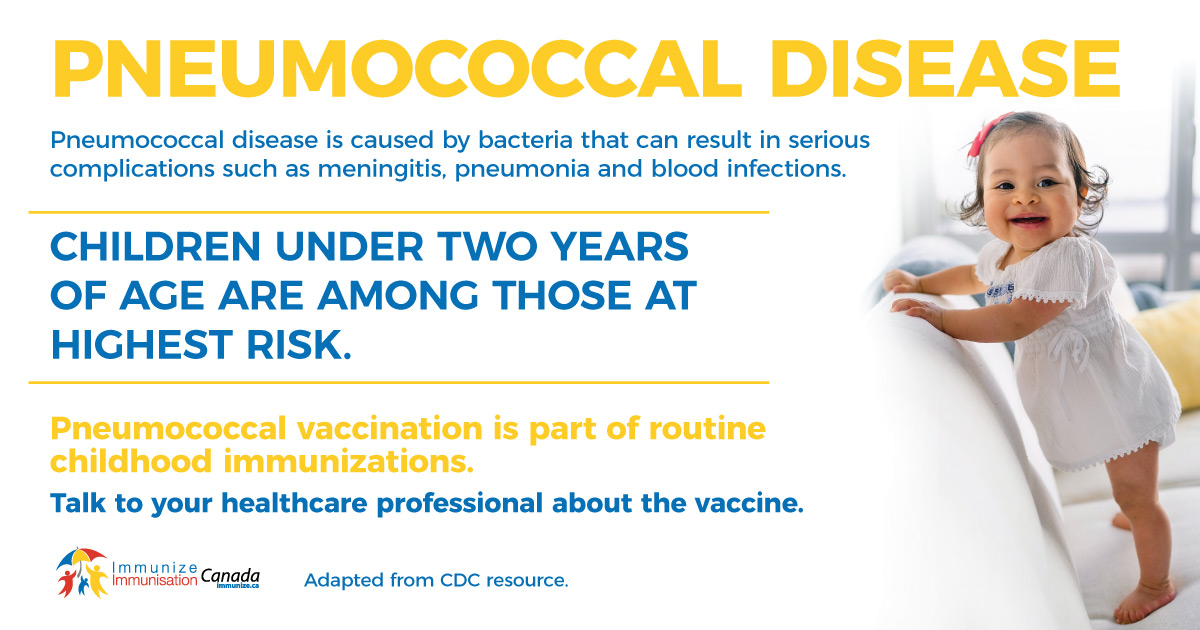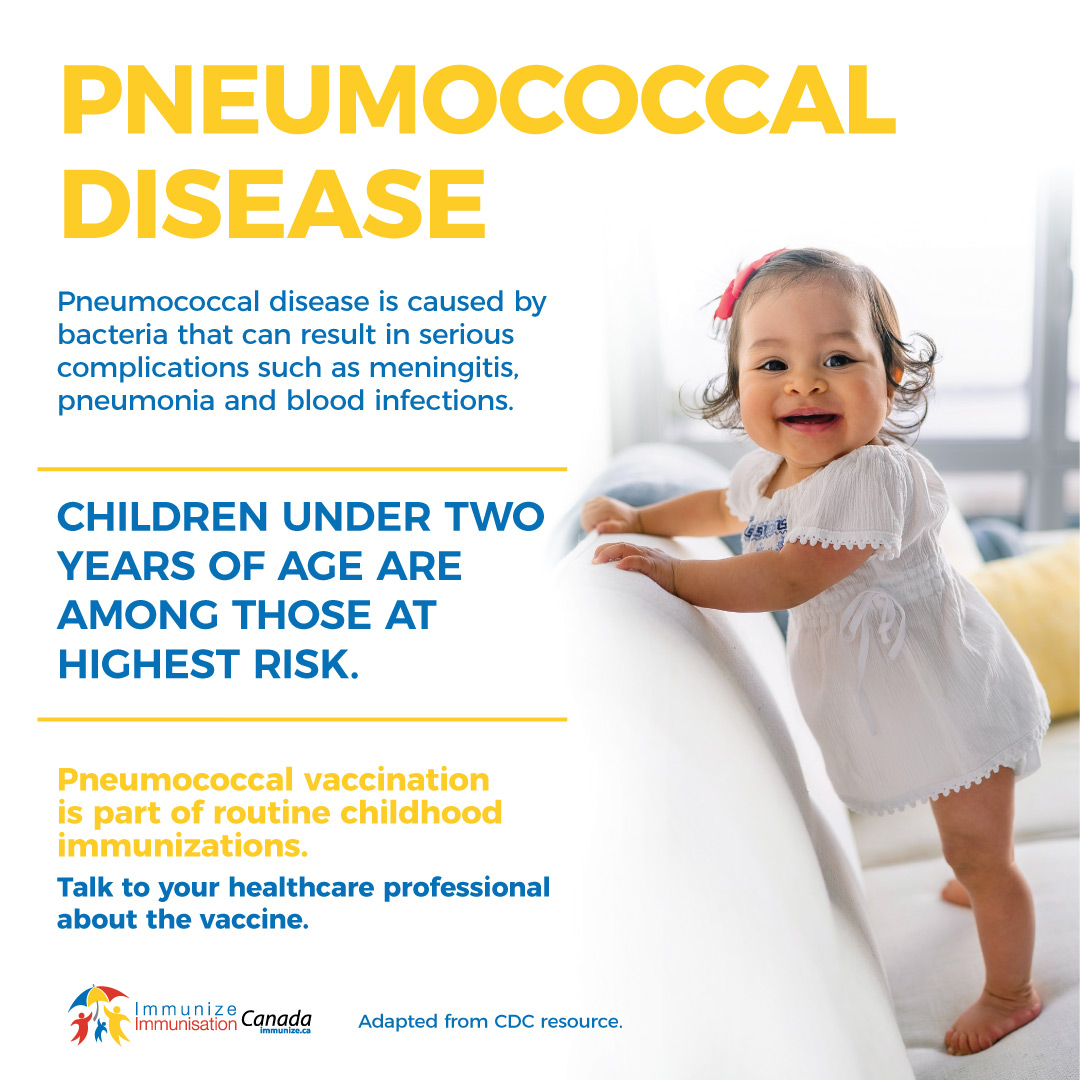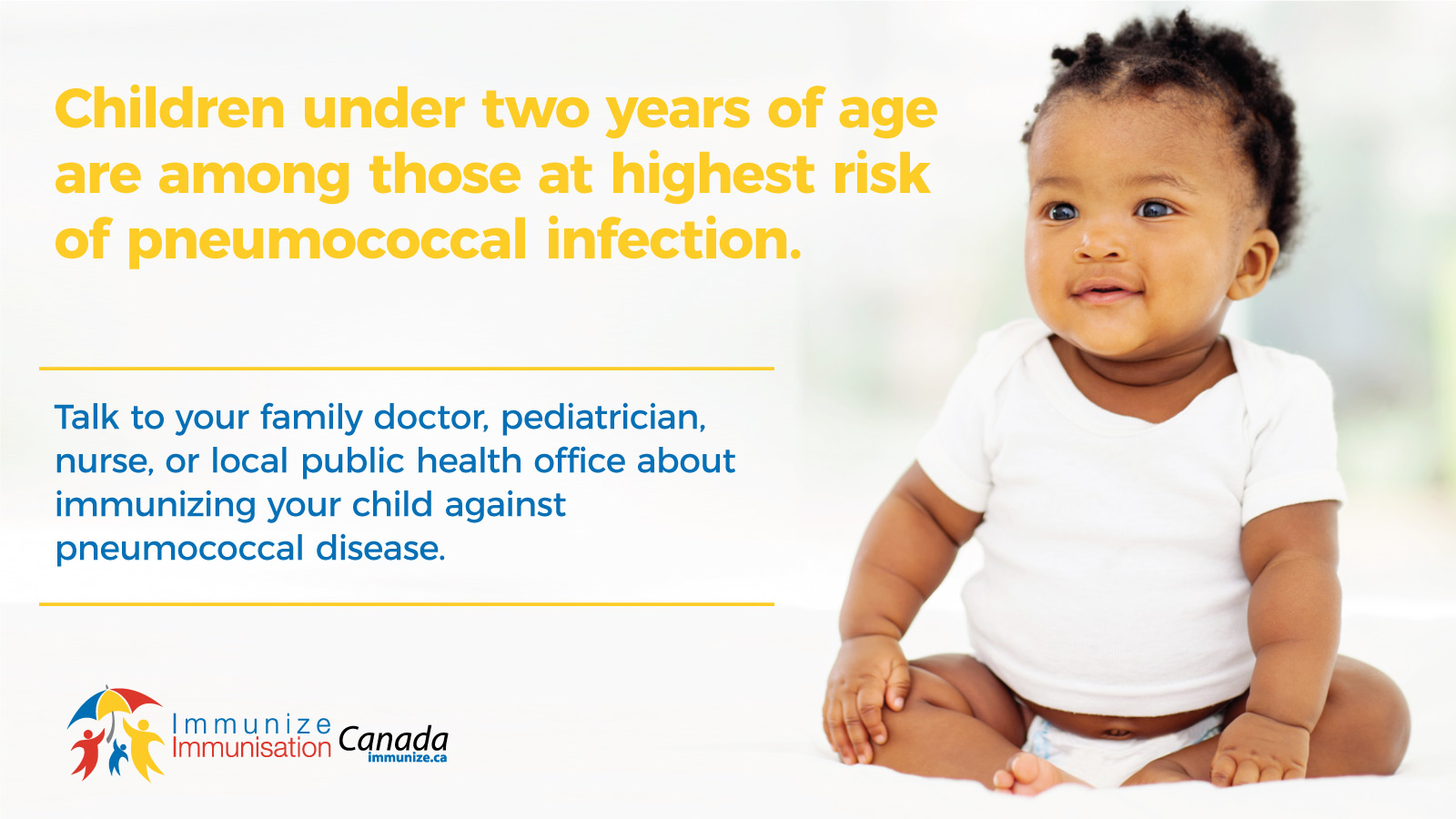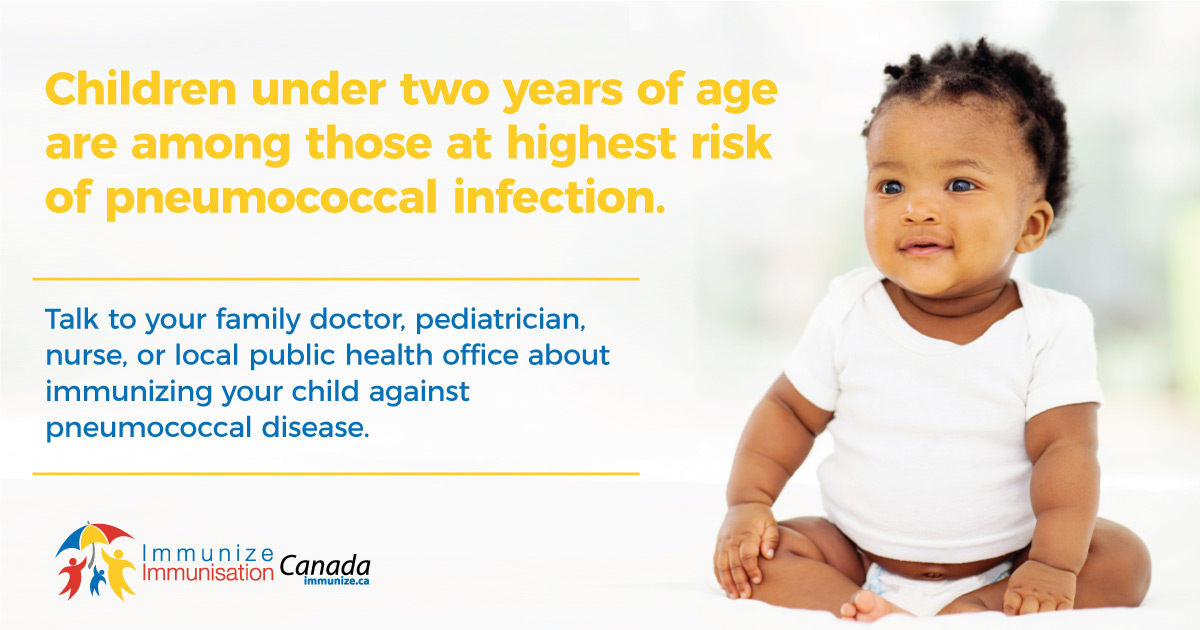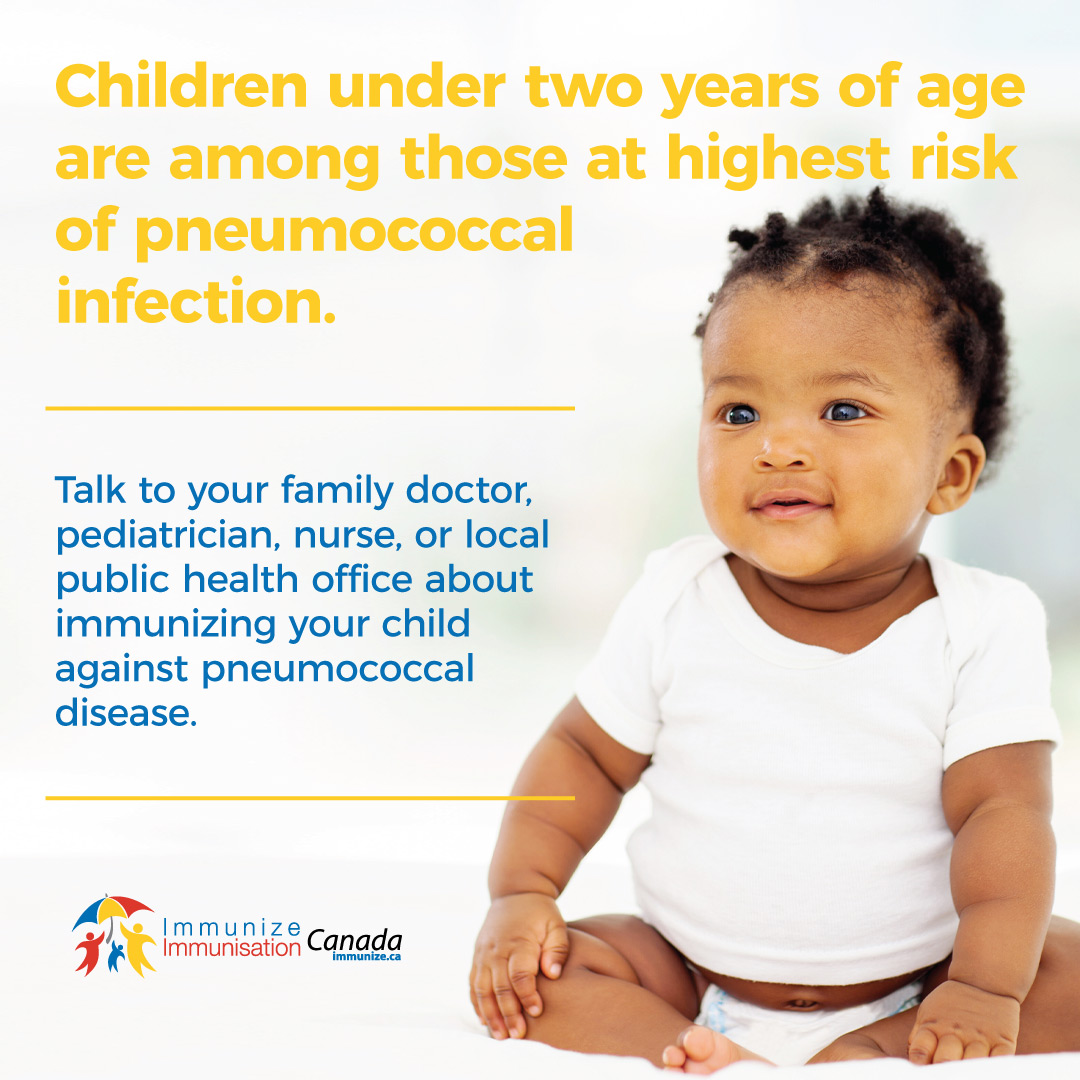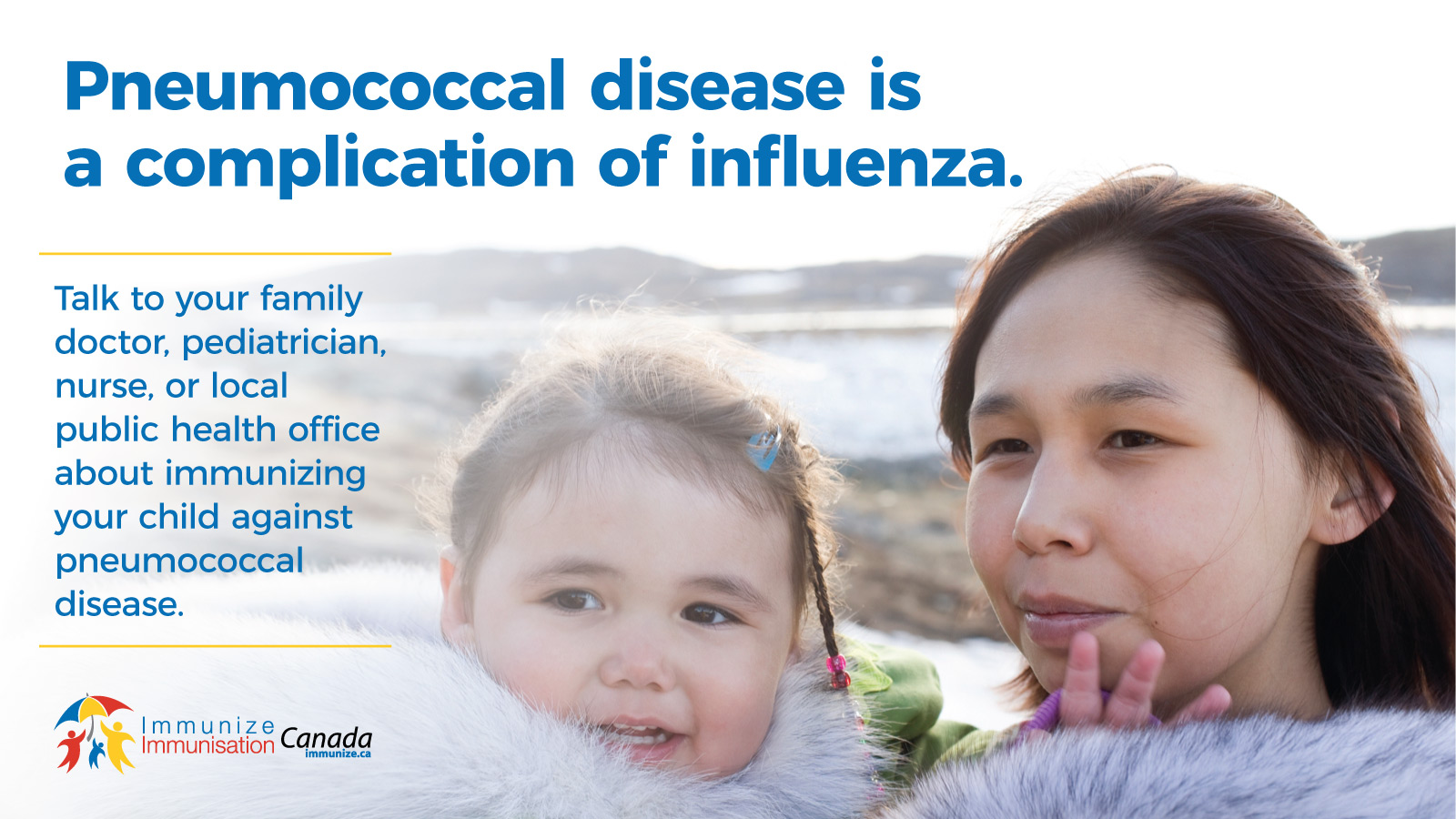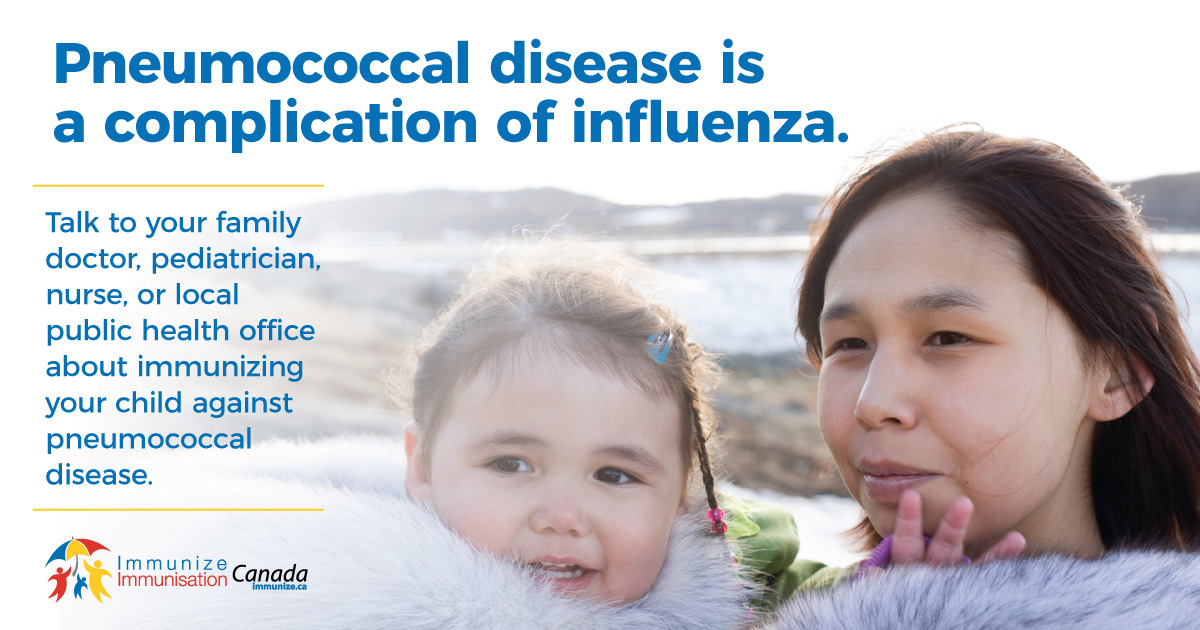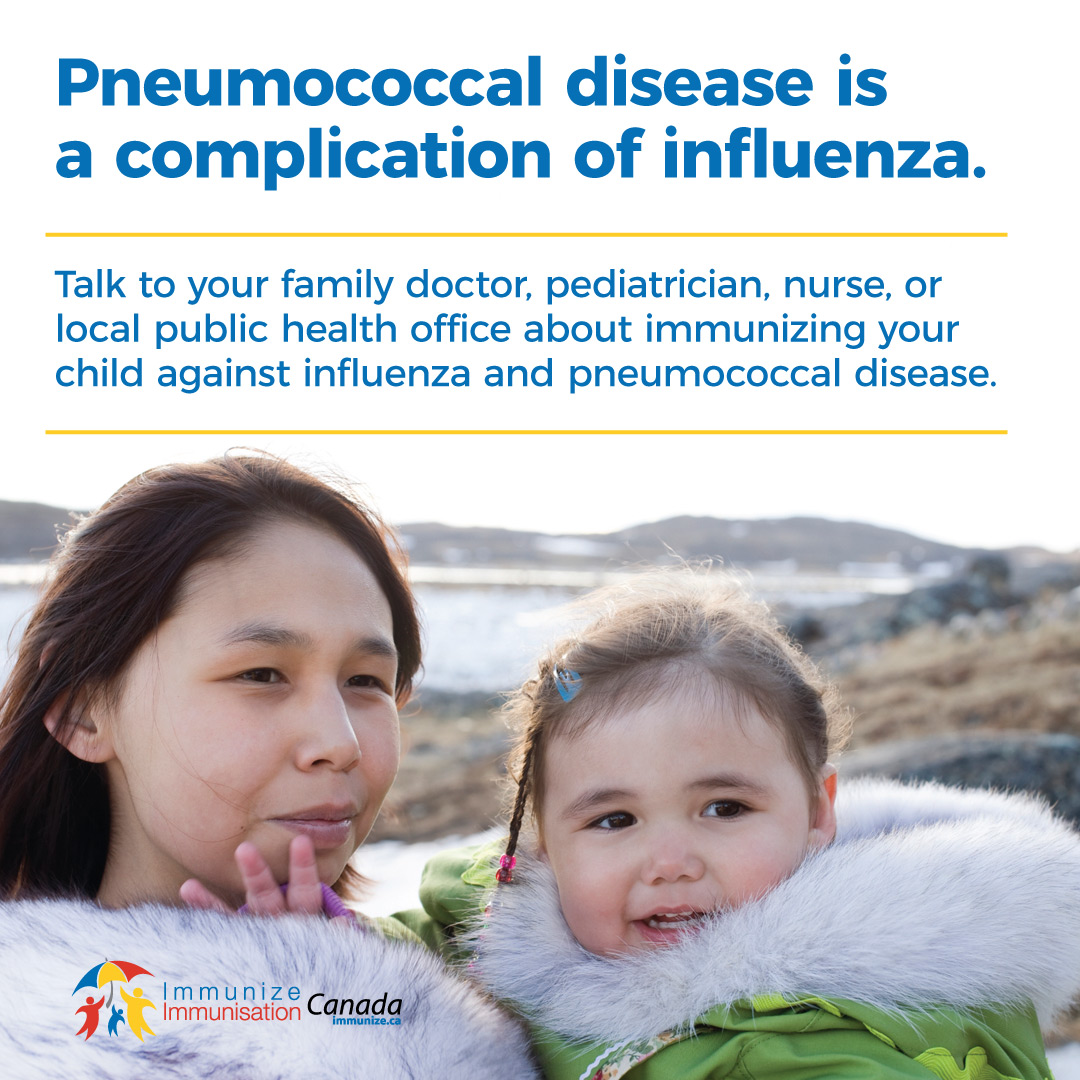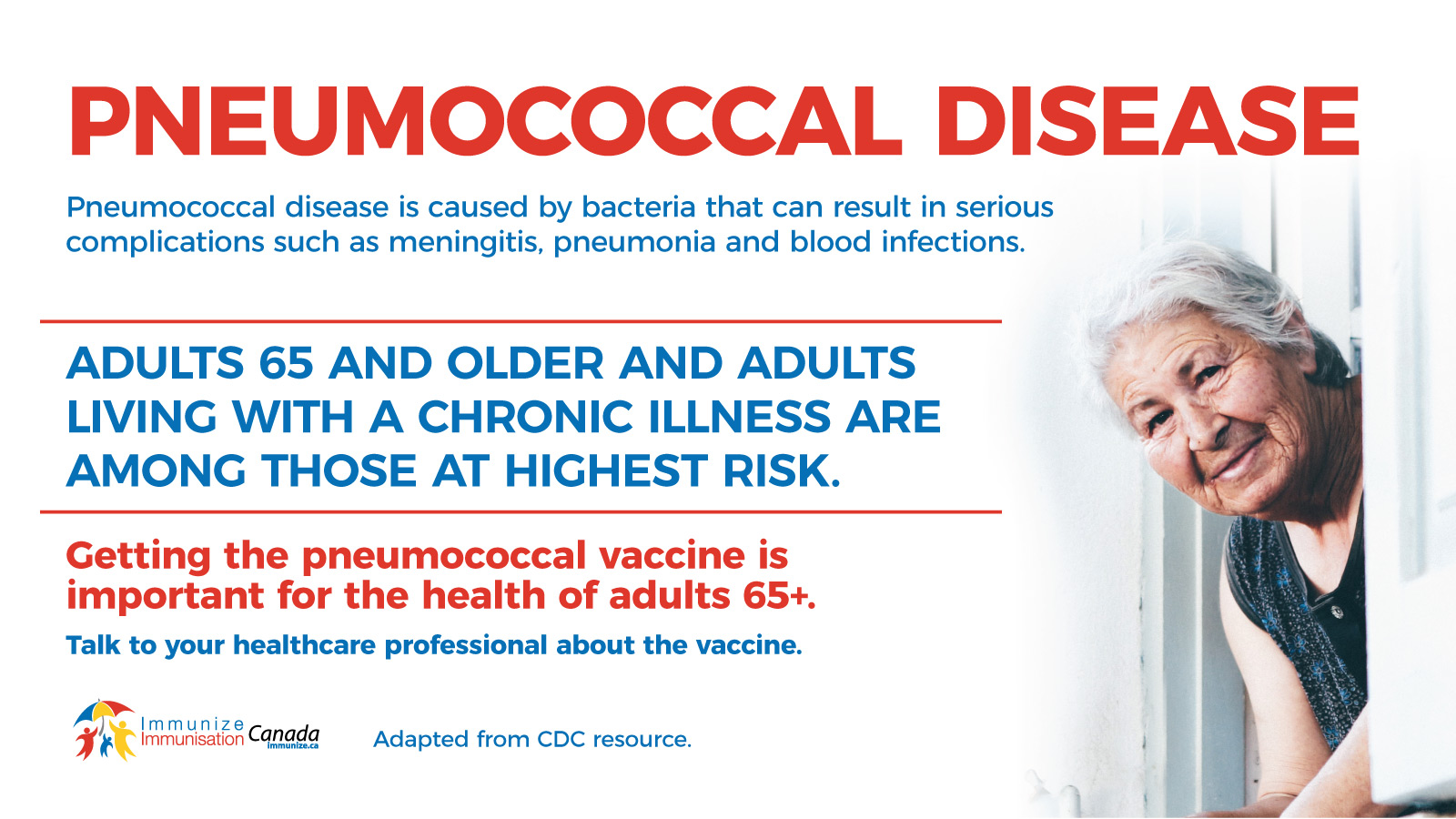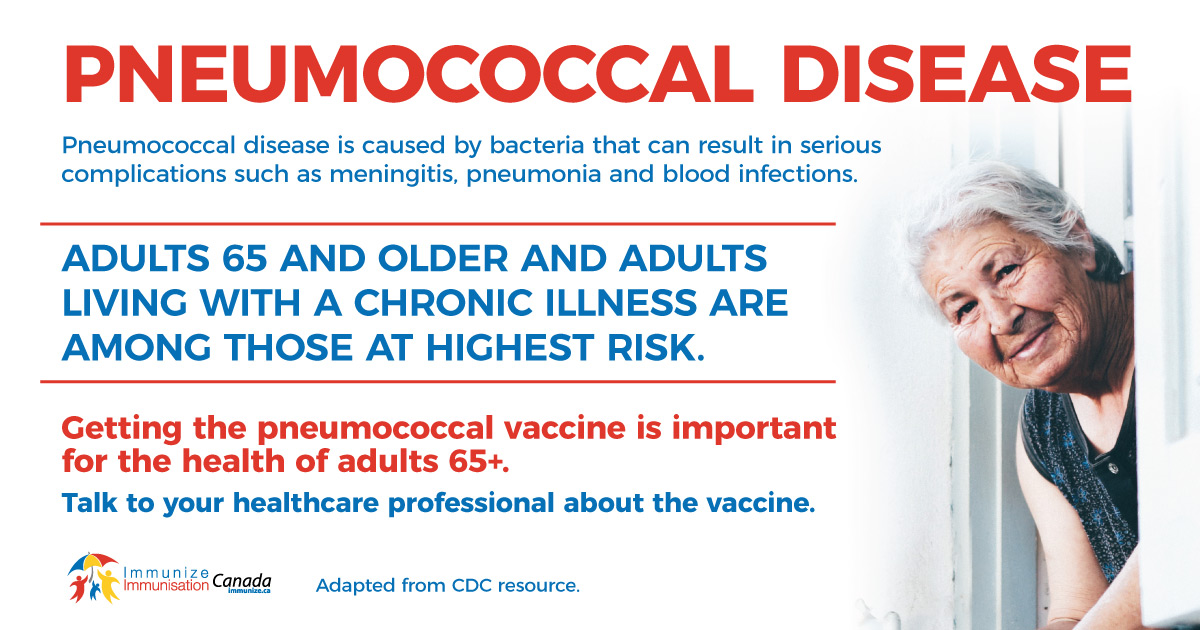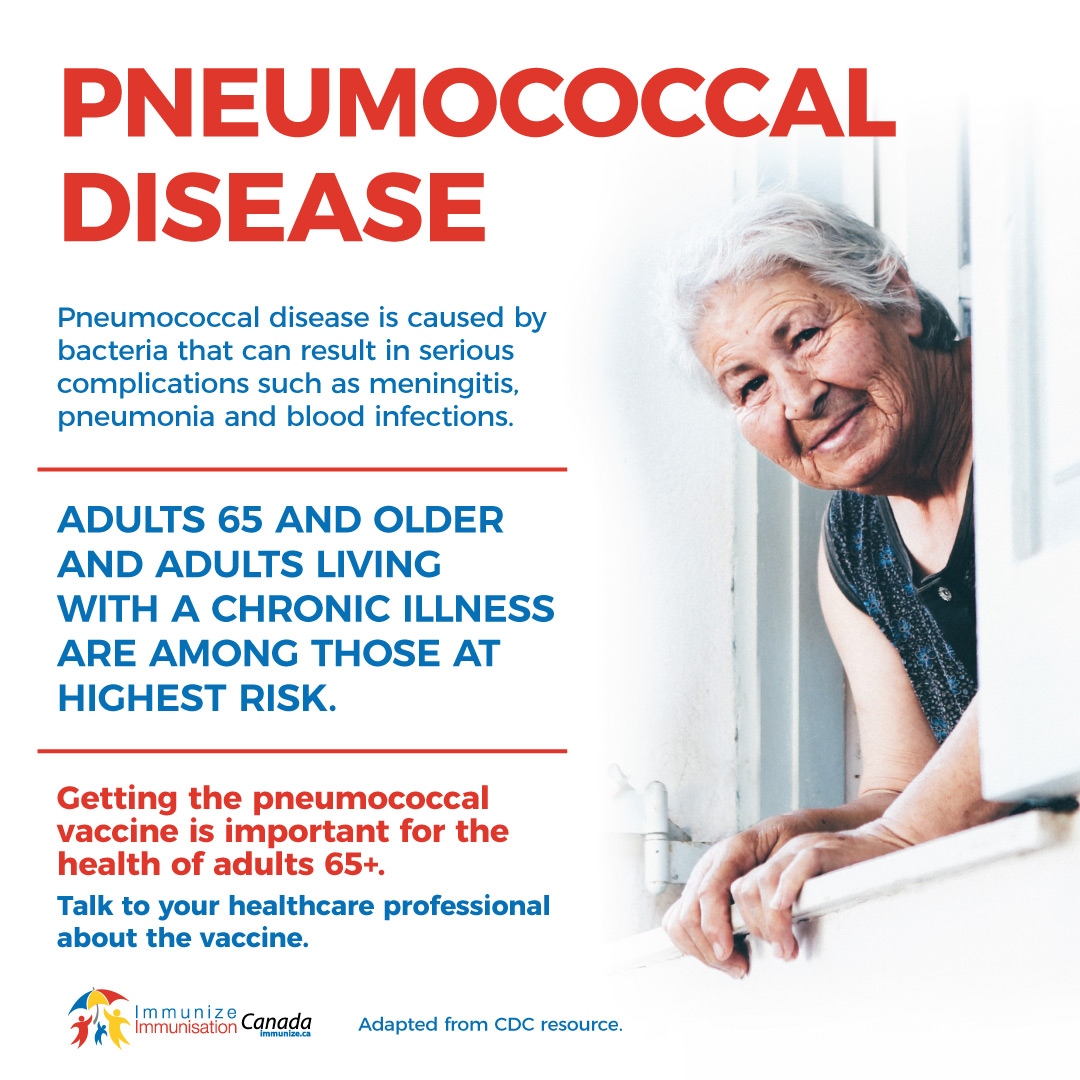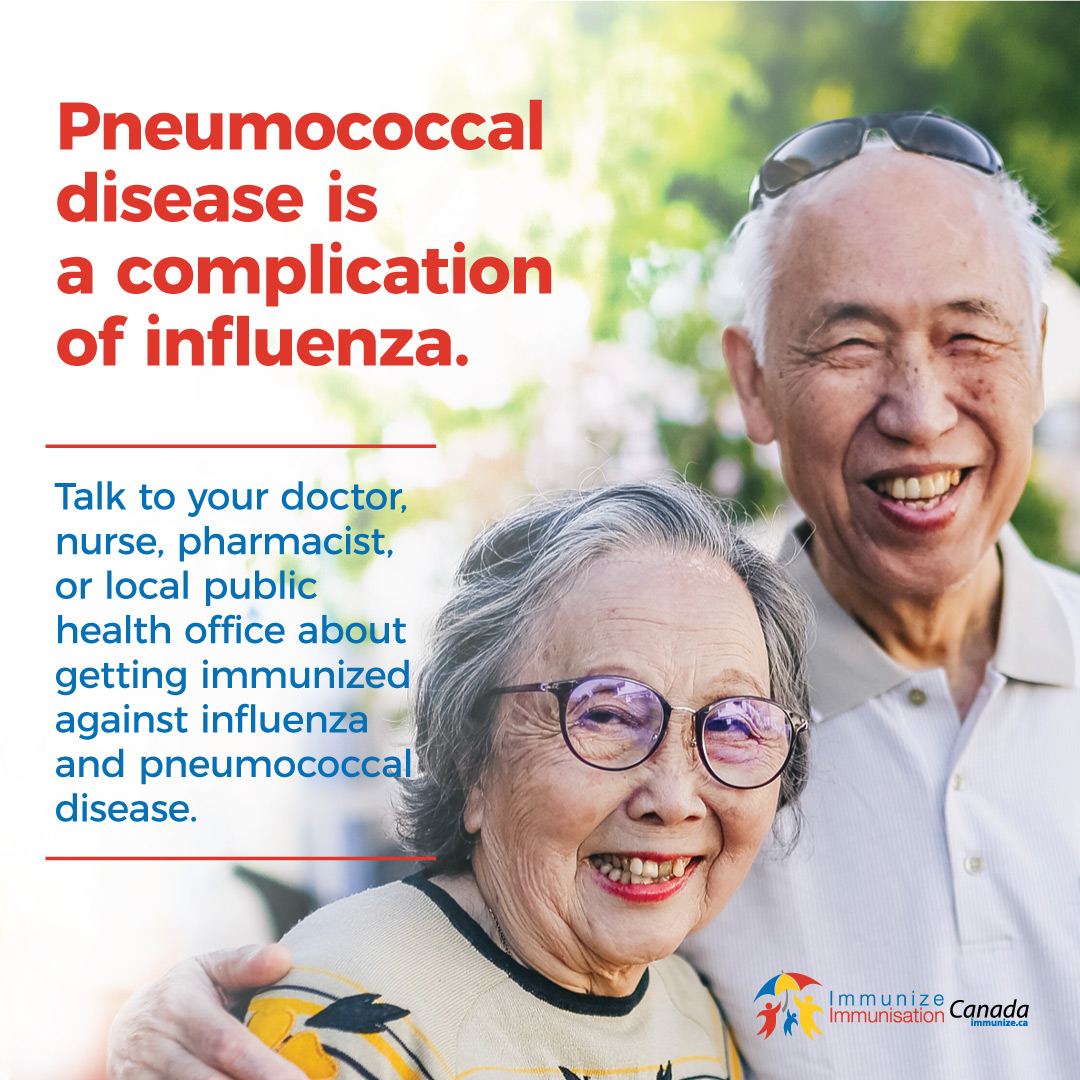Pneumococcal
Pneumococcal is a bacterial disease that may lead to three serious infections: meningitis (brain infection), bacteremia (bloodstream infection), and pneumonia (lung infection). People with this disease may have a fever, be irritable, and may lose their appetite. Those who have meningitis and bacteremia may have headaches, vomiting, and a stiff neck. Those with pneumonia may cough up thick mucus and have difficulty in breathing. Those with otitis media will have severe ear pain. The bacteria are spread from an infected person to another by close contact such as kissing, coughing, and sneezing or sharing items such as cigarettes, toys, and musical instruments.
Who is at risk?
- Children—especially those under the age of 2, with cochlear implants, who are Indigenous, who attend who attend child care centres, and/or who have a chronic illness such as sickle cell disease, pulmonary disease, kidney disease, etc.
- Adults—especially those who have a chronic illness such as heart disease, diabetes, COPD, or splenectomy, who smoke, and adults 65 years of age and older.
Check out our resources on pneumococcal immunization and share with your network!
Campaigns and Awareness Materials

For the Public
Infographics
YouTube Shorts
Let’s go over what pneumococcal disease is.
Let’s go over pneumococcal disease in children.
Videos - Learn about Invasive Pneumococcal Disease (IPD) with Dr. Vivien Brown
High-risk infants and invasive pneumococcal disease (IPD) | with Dr. Vivien Brown
Understanding invasive pneumococcal disease (IPD) | with Dr. Vivien Brown
Impact of invasive pneumococcal disease (IPD) | with Dr. Vivien Brown
Vaccinating on schedule and invasive pneumococcal disease (IPD) | with Dr. Vivien Brown
Vaccine updates and invasive pneumococcal disease (IPD) | with Dr. Vivien Brown
Protecting your community against invasive pneumococcal disease (IPD) | with Dr. Vivien Brown
For Healthcare Professionals
Pocket Guide for Immunizers
Pocket guide for immunizers: Pneumococcal vaccination
(December 2024) This resource is currently under review and will be replaced with an updated version soon.
(pocket guide – PDF: 534 KB)
The purpose of this pocket guide is to serve as a tool for health care providers to learn more about pneumococcal vaccines, enabling them to make strong recommendations to their patients.
This pocket guide references recommendations from Immunize Canada’s team of experts and recommendations made in the Canadian Immunization Guide Chapter on pneumococcal vaccines from the National Advisory Committee on Immunization (NACI).
NACI Statements
Recommendations on the use of pneumococcal vaccines in adults, including PNEU-C-21. National Advisory Committee on Immunization (NACI). 15 November 2024.
Recommendations for public health programs on the use of pneumococcal vaccines in children, including the use of 15-valent and 20-valent conjugate vaccines. National Advisory Committee on Immunization (NACI). 11 March 2024.
Summary of NACI statement of March 11, 2024: Recommendations for public health programs on the use of pneumococcal vaccines in children, including the use of 15-valent and 20-valent conjugate vaccines. National Advisory Committee on Immunization (NACI). 11 March 2024.
Recommendations for Public Health Programs on the Use of Pneumococcal Vaccines in Children, Including the Use of 15-Valent and 20-Valent Conjugate Vaccines: Economic Evidence Supplementary Appendix. National Advisory Committee on Immunization (NACI). 11 March 2024.
Public health level recommendations on the use of pneumococcal vaccines in adults, including the use of 15-valent and 20-valent conjugate vaccines. National Advisory Committee on Immunization (NACI). 24 February 2023.
Recommendations on the use of conjugate pneumococcal vaccine – 15 valent (PNEU-C-15) and 20 valent (PNEU-C-20) in adults. Economic evidence supplementary appendix. National Advisory Committee on Immunization (NACI). 24 February 2023.
Summary of National Advisory Committee on Immunization (NACI) Statement of February 2023: Public Health Level Recommendations on the Use of Pneumococcal Vaccines in Adults, Including the Use of 15-Valent and 20-Valent Conjugate Vaccines. National Advisory Committee on Immunization (NACI). 24 February 2023.
Campaigns and Awareness Materials
Posters
Social Media Images
Children under two years of age are among those at highest risk of pneumococcal infection.
(image for Twitter/X – .jpg: 261 KB)
Children under two years of age are among those at highest risk of pneumococcal infection.
(image for Facebook – .jpg: 169 KB)
Pneumococcal disease – adults 65+ and adults living with a chronic illness
(image for Twitter/X – .jpg: 344 KB)
Pneumococcal disease – adults 65+ and adults living with a chronic illness
(image for Facebook – .jpg: 232 KB)
Adults 65 and older and adults with a chronic illness are among those at highest risk of pneumococcal infection.
(image for Twitter/X – .jpg: 380 KB)
Adults 65 and older and adults with a chronic illness are among those at highest risk of pneumococcal infection.
(image for Facebook – .jpg: 232 KB)


